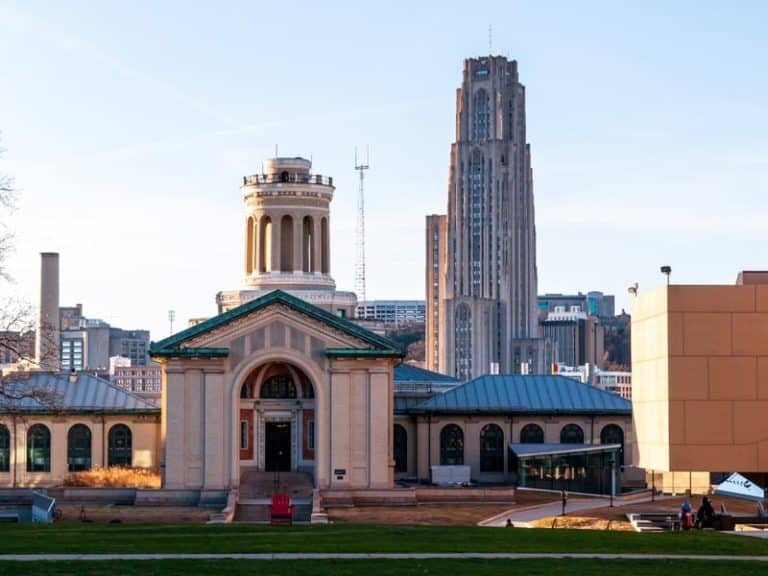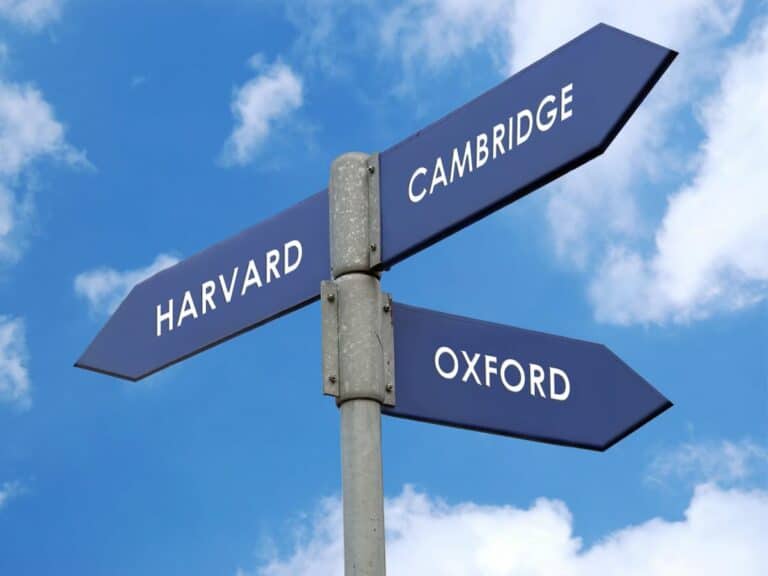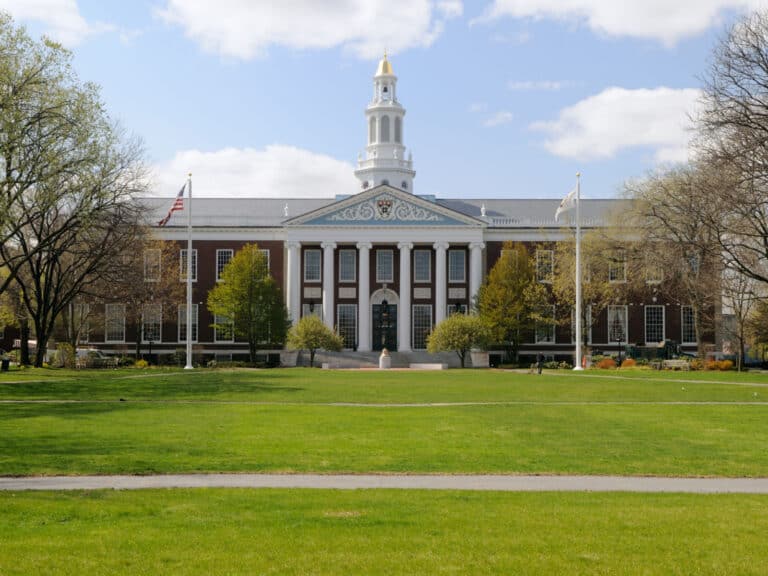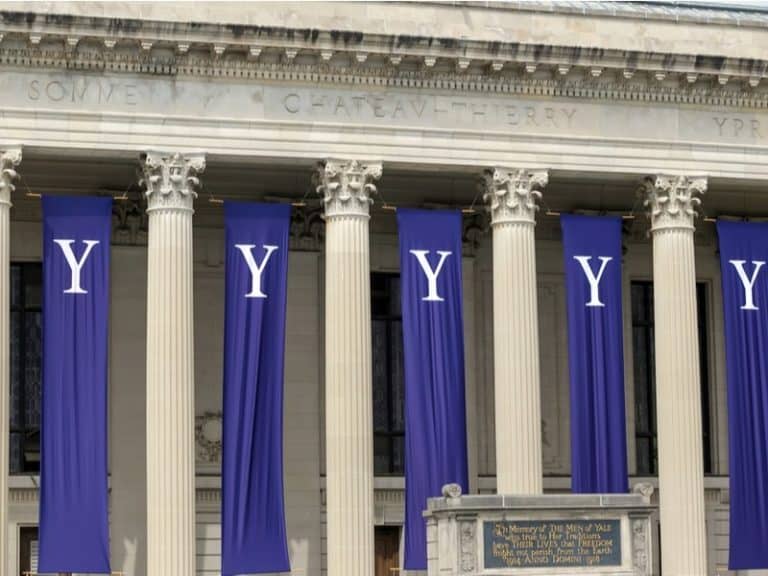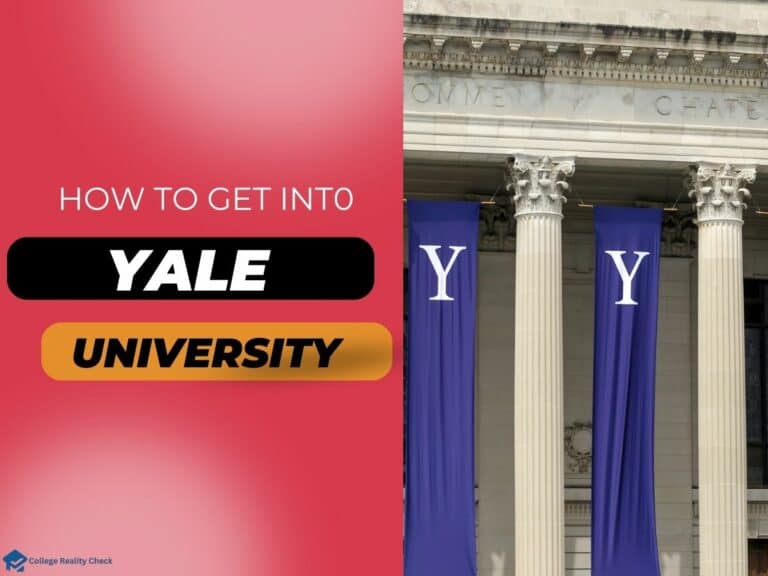Beyond Grades: 4 Unconventional Ways to Impress Harvard Admissions
Most college-bound students dream of attending Harvard University.
Unfortunately, a rejection letter will make around 97% of hopefuls realize just how difficult it is to get into an Ivy League school that has a single-digit acceptance rate consistently year after year.
Get a high GPA.
Graduate at the top of your class.
Ace the SAT or ACT.
Grab a teacher who can vouch for your greatness.
Write a sensational essay.
Apply via Early Action.
Everyone knows these are a key to an invitation to enroll at Harvard.
But everyone knows, too, that they’re easier said than done.
So, let’s skip talking about the things you probably already know and discuss the things you NEED to know about being one of the fortunate 3% applicants who get in.
Of course, the basics are still a must, from getting good grades to taking AP courses.
However, knowing the nitty-gritty of a Harvard admission that many tend to overlook can help separate those who wish to go to Harvard from those who are fit to go to Harvard.
Come From a Wealthy Family
The Harvard Crimson reveals that wealthy kids litter the Harvard campus.
According to it, up to 67% of Harvard undergraduates are from the top 20% of the income distribution.
It means that the majority of students you see walking around on its beautiful 5,076-acre campus in the heart of Cambridge are from households that make $130,000+ in income per year.
They make over five times more than the bottom 20% do!
Speaking of the bottom 20% of the income distribution, only 4.5% of undergrads at Harvard come from this socioeconomic sector, the Harvard Crimson adds.
So, in other words, there are almost 15 times as many moneyed undergraduates as poor ones!
Money Means Access to Better Resources
Many rich teens get into Harvard or any other elite postsecondary institution, not because of their money per se.
It’s because of what their money can buy!
Their parents can afford private tutors that can help them complete challenging AP courses, which can increase the rigor level of their high school record and pump up their GPAs.
Wealth also allows them access to costly SAT and ACT prep courses and materials.
Who needs to get a job to save up for a college education when born with a silver spoon in the mouth?
They can skip working as baristas, movie theater cashiers, or dog walkers because of the guaranteed ability to pay sticker price, thus allowing them to focus on getting good grades and partaking in extracurriculars.
Cash: Not Always Enough to Make a Splash
Refrain from assuming that being rich alone is enough to get you a Harvard ticket.
While it allows you to pay for things that can help better prepare you for Ivy League admissions, you must still invest lots of time and energy into building college-readiness skills.
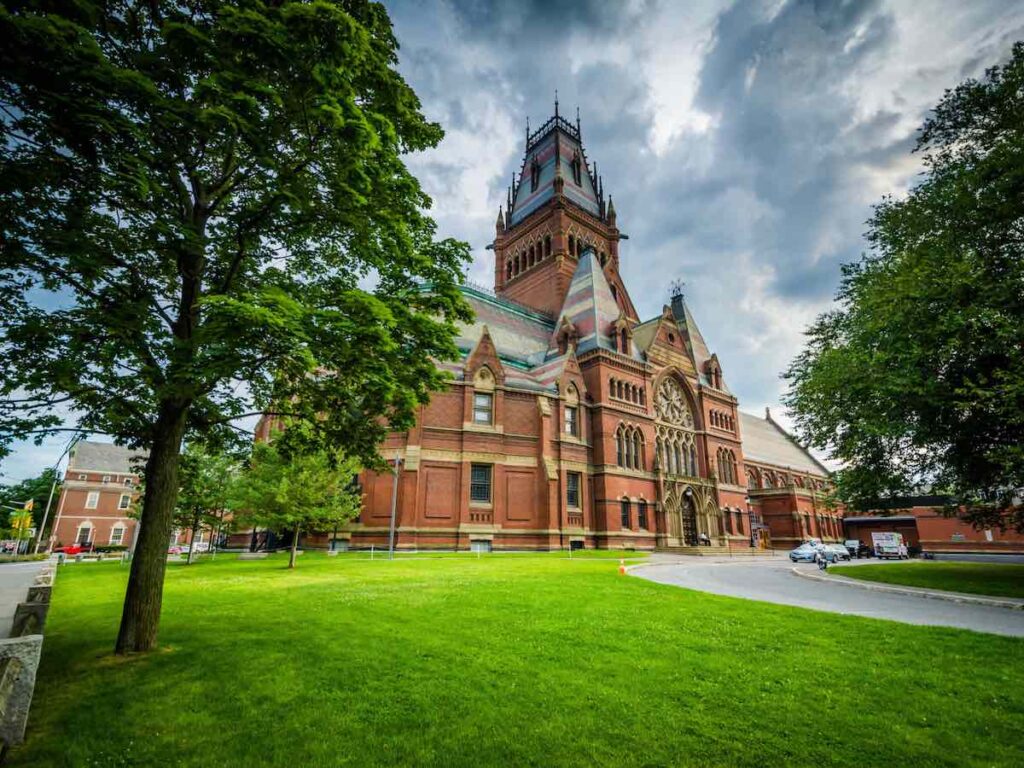
Be White (Or Asian)
Before anything else, there’s something I want to make clear:
Harvard has a decently diverse campus.
I accessed its most recent Common Data Set (CDS) and did the math — I learned that around 51% of its first-time, first-year students are from minority or underrepresented groups.
Still, the fact remains that there are more Whites at Harvard than any other race.
Around one out of every three undergraduates you spot on its campus is White.
Second to whites are Asians, making up around 22% of Harvard’s undergraduate population.
Meanwhile, only 12% of first-time, first-year students are Hispanics, 10% are Black, and only less than 1% are American Indians, Alaska Natives, Native Hawaiians, or other Pacific Islanders.
Race Still an Admissions Factor
Google Harvard’s latest CDS and click the link.
Go straight to section C7.
It’s where you will find the different admissions criteria and their relative importance.
Racial/ethnic status: it says right there that it counts.
Despite the Supreme Court ruling against affirmative action in American higher education, Harvard says it might still consider race when reviewing college applications.
It argues that a diverse campus is a perfect learning environment.
However, it does not tackle its continued dependence on legacy admissions (also known as legacy preference or alumni connections), which we will discuss in a few.
Any Race Has an Equal Fighting Chance
Of course, being white alone is not enough to get a teenager into Harvard.
You can be of any skin color and still receive a hard-to-come-by acceptance letter if your entire Harvard application can wow some of the most selective panel of admissions officers in the country.
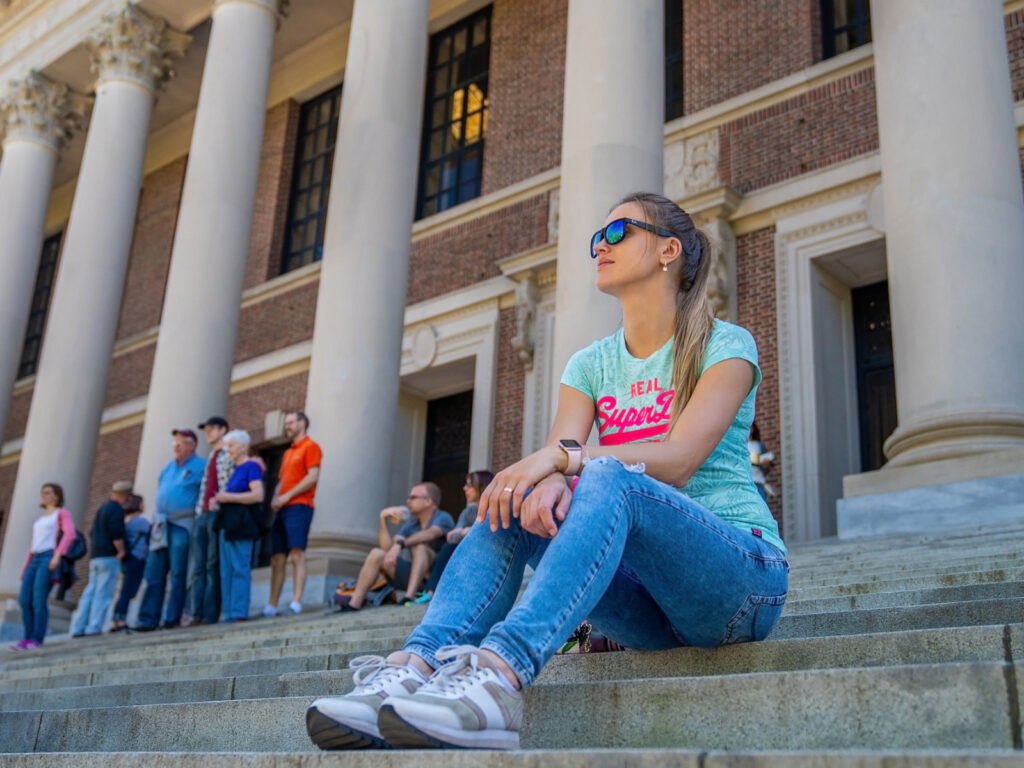
Shine in Varsity Sports
Almost 80% of Harvard’s student body is involved in some form of athletics.
After all, the Ivy League association materialized when several higher education institutions exhibited superiority in various collegiate sports, especially basketball and football.
The acceptance rate for recruited athletes at Harvard is a staggering 86%!
For everyone else in general?
Just 5%.
As such, it isn’t surprising that up to 11% of first-time, first-year students are recruited varsity athletes, which means there are more of them on campus than most other minority groups.
What’s so wonderful about being a star athlete in your high school is that you don’t have to get in touch with Harvard to show your interest in attending — Harvard will call you!
Depending on the sport you play, here’s an example of when a coach may contact you via phone:
| Sport | Schedule |
|---|---|
| Football | April 15 to May 31 of your junior year of high school |
| Basketball | After June 15 at the end of your sophomore year of high school |
| Ice Hockey | After January 1 of your sophomore year of high school |
| Swimming and Diving | After July 1 at the end of your sophomore year of high school |
Playing Major Sports is a Huge Plus
Harvard has 42 varsity teams. They are known as the Harvard Crimson.
To increase your chances of getting into Harvard as a student-athlete, it’s not enough that you play sports — it’s an advantage to play one of the biggest sports at the Ivy League school.
Track and field: it’s the biggest sport on campus.
It was in 1880 when Harvard won its first national championship in men’s track and field; to date, there are 13 national championship titles under the belt of the men’s track team.
Other top sports at Harvard are:
- Baseball
- Basketball
- Crew
- Football
- Hockey
- Squash
Athletes Still Have to Apply Like Everybody Else
It’s worth pointing out that recruited athletes still have to go through the same admissions process as non-recruited athletes, which means a competitive college application matters in successfully getting in.
However, with Harvard coaches vouching for their abilities, it’s no wonder why getting in is easier for them.
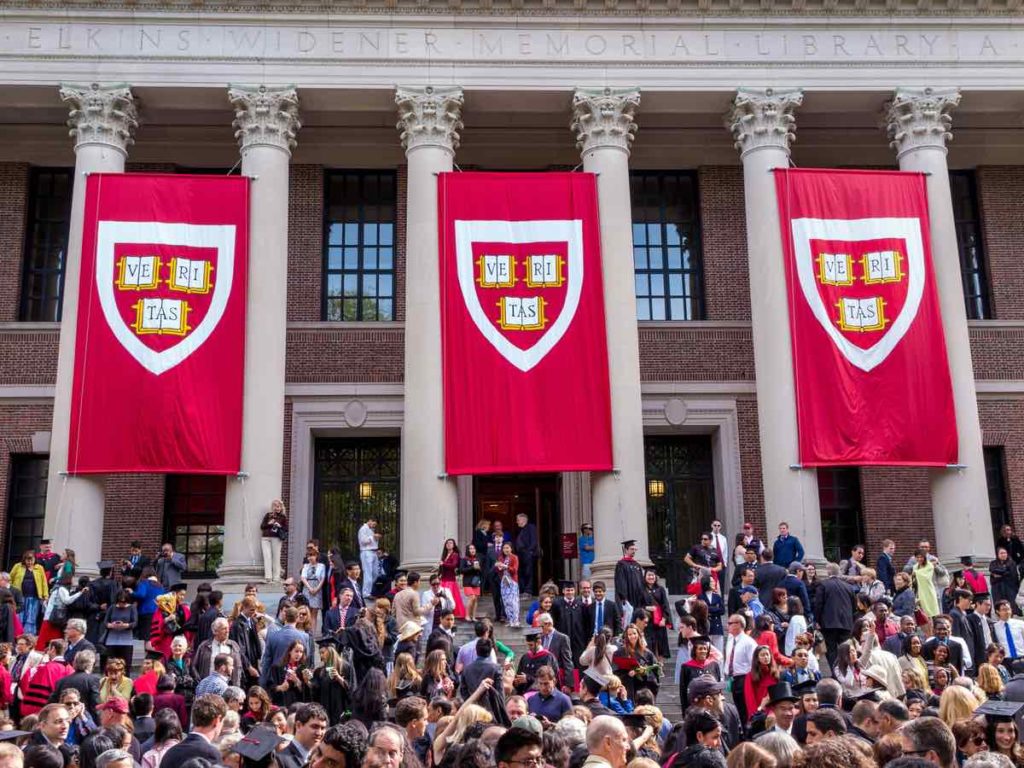
Be an Alum’s Flesh and Blood
Harvard’s acceptance rate for legacy students is around 34%.
You might have higher chances of getting in than everyone else if your parent went to Harvard — you are still a legacy student if it’s your cousin, aunt, or grandfather who’s an alumni member, but less compellingly so.
Often, institutions like Harvard that do not receive funding from the state government have difficulty turning down applicants from a family where someone was once an attendee.
It’s because it helps foster loyalty and an intergenerational community.
It’s also about the money.
Legacy admissions play a critical role in keeping donors engaged. Harvard’s endowment ($50.7 billion) consists of over 14,000 funds from philanthropic donors, including former students or graduates.
Being a Faculty’s Child Counts, Too
However, it’s not just a relative who’s been on Harvard’s campus who can help you get in.
A relative on its campus regularly, such as a teacher, can also work to your advantage — though only around 1% of the student population consists of faculty children, you can enjoy a 47% acceptance rate.
Read Next: How to Get into Yale University
Disclaimer: The views and opinions expressed in this article are those of the authors and do not necessarily represent those of the College Reality Check.

